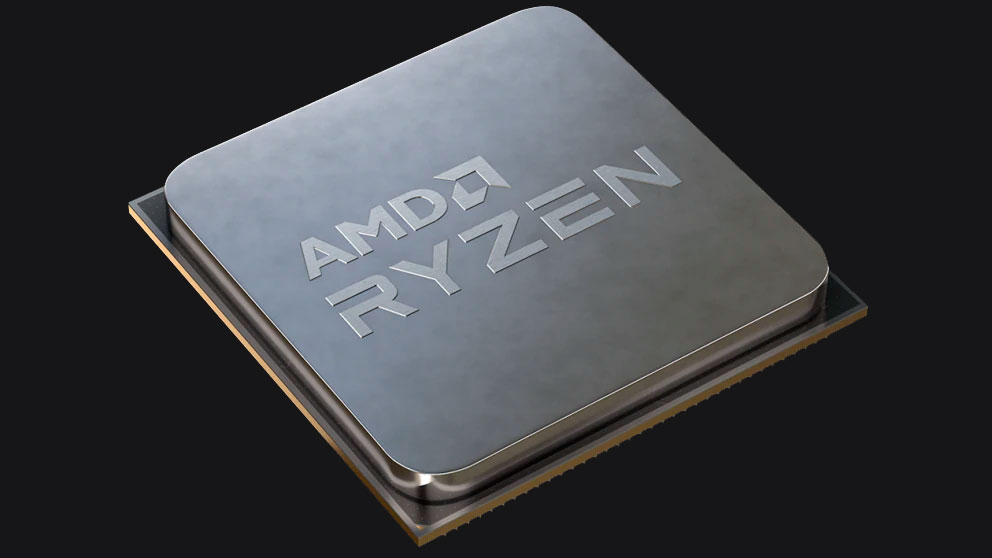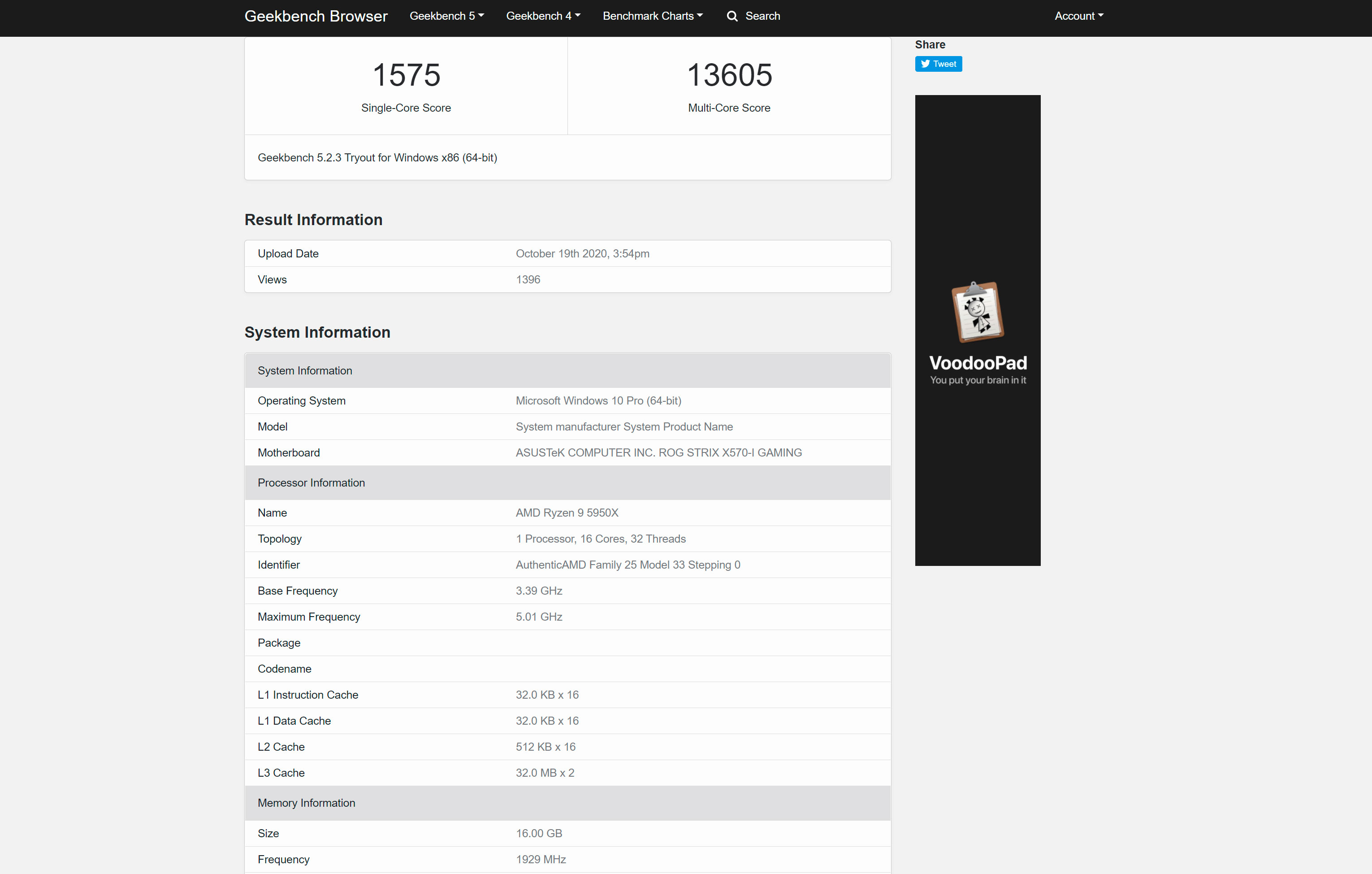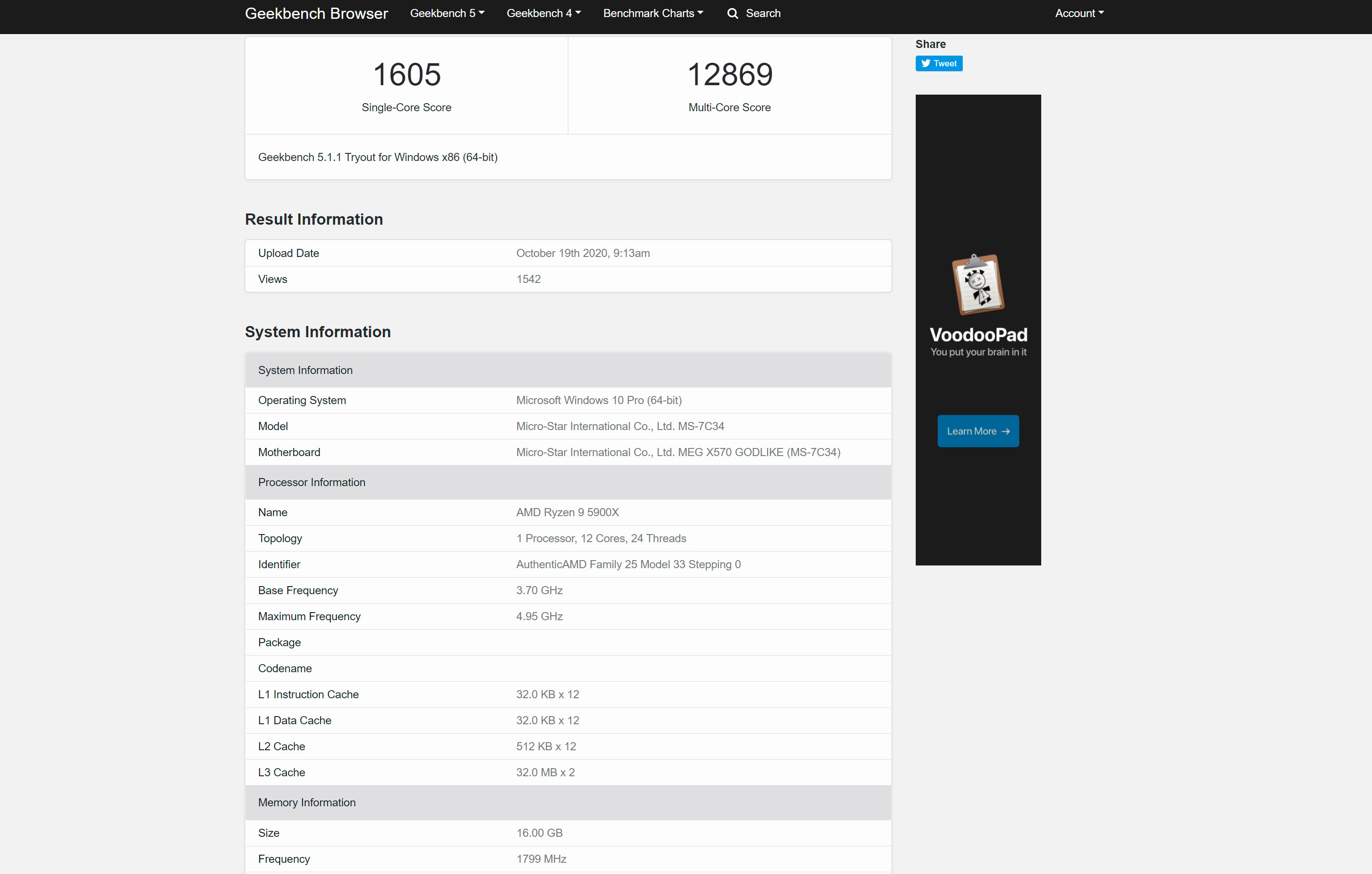Ryzen 9 5950X, Ryzen 9 5900X Benchmarks Back AMD's Claim of 19% IPC Uplift on Ryzen 5000

More benchmark results (via @Tum_Apisak) of AMD's Ryzen 5000 (codename Vermeer) processors have emerged ahead of their November 5 launch. Specifically, the Ryzen 9 5950X and Ryzen 9 5900X have been sighted flexing their muscles in Geekbench 5 - to the tune of just shy of 5GHz.
If you didn't know already, the Ryzen 9 5950X and Ryzen 9 5900X are AMD's new 16-core and 12-core parts from the Zen 3 family. The first will land with a 3.4 GHz base clock and 4.9 GHz boost clock, while the latter sports a base and boost clock of 3.7 GHz and 4.8 GHz, respectively. It would appear that, under the right conditions and cooling, the pair of Ryzen 5000 chips have no problems boosting past AMD's specifications.
In the Geekbench 5 tests, both the Ryzen 9 5950X and Ryzen 9 5900X's clock speeds oscillated between 4.9 GHz and 5 GHz. The Ryzen 9 5950X peaked at 4.987 GHz, and the Ryzen 9 5900X got to 4.947 GHz. Both Zen 3 chips were just a few megahertz shy of 5 GHz. The conditions of either benchmark run are unknown. It's plausible that the processors were leveraging AMD's Precision Boost Overdrive (PBO) technology, an automated overclocking feature that pushes the processor beyond its specifications to supply higher performance. In any event, it's still impressive to see 16 cores almost operating at 5 GHz.


As always, we recommend exercising caution with preliminary benchmarks. Furthermore, there's only a single submission for both the Ryzen 9 5950X and Ryzen 9 5900X, so there's no way to actually corroborate the results.
The Ryzen 9 5950X and Ryzen 9 5900X scored 1,575 points and 1,605 points, respectively, on the single-core tests. It's not fair to compare a single submission against the aggregated result; it's just what's available. According to the Geekbench 5 database, the average single-core scores for the Ryzen 9 3950X and Ryzen 9 3900X are 1,292 and 1,280, respectively. We see improvements up to 21.9% on the Ryzen 9 5950X and up to 25.3% on the Ryzen 9 5900X, which aligns with AMD's promise of a 19% increase in instructions per cycle (IPC) throughput.
The two Zen 3-based processors seemingly deliver higher single-core performance over the Core i9-10900K, Intel's current mainstream flagship part. While the Core i9-10900K is restricted to 10 cores, let us not forget that it's clocked at 3.7 GHz with a maximum boost clock that tops out at 5.3 GHz through Thermal Velocity Boost (TVB). The average single-core score for the Core i9-10900K is 1,412 points, meaning the Ryzen 9 5950X and Ryzen 9 5900X and are 11.5% and 13.7% faster, respectively.
Ryzen 5000 goes up for sale on November 5, so the countdown continues. So far, leaked benchmarks suggest that AMD has another winner on its hands, and Ryzen 5000 will likely disrupt the processor market as we know once more.
Get Tom's Hardware's best news and in-depth reviews, straight to your inbox.

Zhiye Liu is a news editor, memory reviewer, and SSD tester at Tom’s Hardware. Although he loves everything that’s hardware, he has a soft spot for CPUs, GPUs, and RAM.
-
patrick47018 Magical 5GHz, like the FX-9590 I used to have, lol. Won that in a sweepstakes from AMD and paired it with an ASRock 990FX Extreme9.Reply -
PrinceTexasLoaf Got my fx 6300 to 4.4Ghz, tried 4.5Ghz and ended up frying my motherboard. That was some years ago. Man fx cpus overclock smooth as butter.Reply